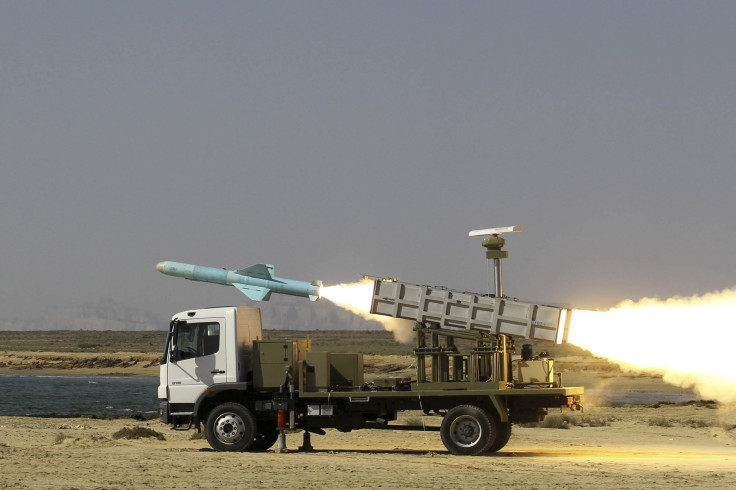Iran Missile Defense Radar: Nazir, Bina Systems Are Capable Of Hitting Targets In Other Countries

Iran has commissioned two radar defense systems capable of detecting targets far outside of its borders. The Nazir and Bina systems, which went into service Tuesday, are capable of detecting and hitting targets inside the airspace of Iran's neighboring countries, according to a report by Sputnik, a Russian news website.
The Nazir system can intercept targets up to 800 kilometers (500 miles) away and at altitudes of 100,000 feet, while the Bina defense system can detect three-dimensional targets that use stealth and electronic warfare.
Both new systems are “unprecedented” and difficult for an enemy to counter, said Brig. Gen. Farzad Esmaili, Iran’s air defense commander. Both systems work in wavebands that are “impossible” for other weapons systems to detect, the general continued, saying Iran’s advanced systems can detect wide-body flying objects.
The radars can also detect “semi-ballistic missiles, cruise missiles, wide-body planes and small flying objects,” the general added.
The new systems will work alongside the Russian-built S-300 that Iran is expected to have delivered later this year or early 2016. The S-300 is a far more advanced system that is designed to detect up to 12 targets at a time and make multiple engagements.
Iran initially ordered the S-300 system in 2007, but international sanctions prevented Russia making the delivery and the deal was delayed from 2010 on. But the completion of the Iran nuclear deal to lift those sanctions in exchange for limitations on Tehran's nuclear ambitions has prompted Russia to let the contract for the S-300 go ahead.
Israel, Iran's regional enemy, objects to the nuclear deal made by six world powers. Israel says the sanctions relief that will allows tens of billions of dollars in oil revenues to flow into Iran will help the country further develop its nuclear capabilities rather than hinder them.
The U.S. Congress is expected to vote on the deal later this month.
© Copyright IBTimes 2024. All rights reserved.












